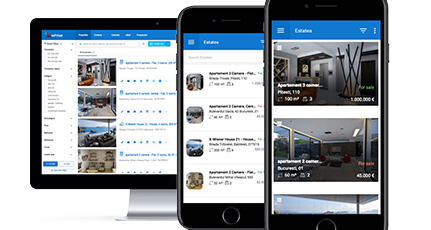
Do you want to start a career as a Quality Assurance tester, but you don’t know enough about this department’s role in a software development company?
The Quality Assurance (QA) process is necessary for all areas, from software development to the automotive or telecommunications industry.
The main benefit of software quality assurance is avoiding errors before they occur. However, this materializes in saving both time and expenses by offering high-quality services. In addition, these services are a critical competitive differentiator for any company interested in increasing its clients’ portfolio.
To better understand this type of service, we talked to our colleague Madalina Ciomblea (QA Tech Lead). Madalina accepted the challenge of answering our questions, giving us a concrete example of what her team’s activity means.
A few words about Madalina Ciomblea

Madalina became part of the Roweb team through an internship. Because she is communicative and dynamic, she would not have been seen doing pure programming in the long run.
However, her technical background helps her a lot in what she does now – QA – and she feels that her team’s role is becoming more and more critical in the success of complex projects.
What is the primary role of QA in complex projects?
Madalina: The central role of QA is responsibility. We are responsible for the quality of the development of complex software products.
We are involved in performing manual and automated tests, writing test cases, test scenarios, documenting applications, and more so that the implementation and testing processes are transparent and simplified, and the application created is appropriate to the purpose.
Also, some of the tasks include system analysis, mitigating early risks, and software problems.
We work closely with team members, perform all levels of testing (unit testing, integration testing, system testing, and acceptance testing), design and develop automation scripts when needed, and, of course, provide all the necessary support.
What does a specific working day look like for someone in the QA department?
Madalina: If someone imagines that being part of the QA department means that you are sitting in front of the computer all day doing the same repetitive task, they are nothing but wrong. This is not the case.
Every day in the life of a person who works in the QA field is different, and they never stop learning.
A QA software tester gathers specifications, maintains up-to-date project documentation, and communicates daily with the team. On the other hand, they write test cases and conditions, discover errors, report them, and can juggle multiple tasks, from start to finish of the software development cycle, over its entire duration.
How many people are in the Roweb QA department?
Madalina: Currently, the QA team consists of 10 people, but we want to grow and promote the QA career in this company because it is, indisputably, full of satisfaction and challenges.
All members of the QA team have varied experiences, and they are a mixture of skills and temperaments. We all make sure that quality objectives are met, we share knowledge, ideas, tips, and experiences, working in a positive and relaxing environment.
We also know very well the projects we are part of. Thus, every time a new member comes, it is easy for us to take care of his / her integration because we know all the stages that an application has gone through: from writing to the changes required by the client.
Tech skills vs Soft skills. What does someone need to develop a career in QA?
Madalina: QA testers spend hours exploring every aspect of the application to ensure customer satisfaction.

However, this job also means reporting and collaboration skills, proactivity, and a desire to learn new things, as we use many modern applications to make our work more accessible (some examples: BrowserStack, Cypress, Postman, Confluence, etc.).
Since testing is an essential part of the QA process, what is the difference between manual and automated testing?
Both manual testing and automated testing have advantages and disadvantages. For example, not everything can be automated, and manual testing is always needed for fast and accurate visual feedback.
On the other hand, automated testing increases productivity. It is a complex and efficient code-based process with very high coverage. But without manual testing, it is difficult to get an overview of the visual elements of the interface, for example.
The important thing is that we can use both in our activity, depending on the project’s complexity. However, if you have the necessary technical knowledge, you can easily transition from manual testing to automated testing.
Why would you need a QA internship?
Madalina: First of all, for the experience. Then, step by step, understand what software testing really means and how challenging a career in this field would be.
It is necessary to “taste” all this experience and information to know whether or not you would like to be part of a QA team. Personally, I really love my job, and I wouldn’t give up on it for anything in the world, although when I was a student, I didn’t know what it meant, and I couldn’t have imagined it at that time.
If I hadn’t tried, I wouldn’t have known today what testing is and that it’s a great choice.
Can you give us some examples of projects from Roweb’s portfolio where QA plays an important part?
Madalina: For example, VMS 365 – is a complete HR platform. We have a dedicated team of QA experts who take care of the quality assurance of this platform. Another good example is Whise – a CRM solution developed for real estate. This CRM is number one in Belgium, registering the largest market share and number of customers.
Last but not least example is Tourpaq – a tour operator management system that enables users to manage everything that has to do with their activity from a single dashboard. Tourpaq is the largest tour operator in Denmark, and we have been working together since 2008.
Key points about Roweb’s team:
- our team has more than 130 software developers;
- the quality assurance team is made of 10 QA testers;
- over 50% of software developers are seniors;
- we have employees who have been part of the team for over 17 years;
- we have 3 offices in Romania and many developers who work remotely.




